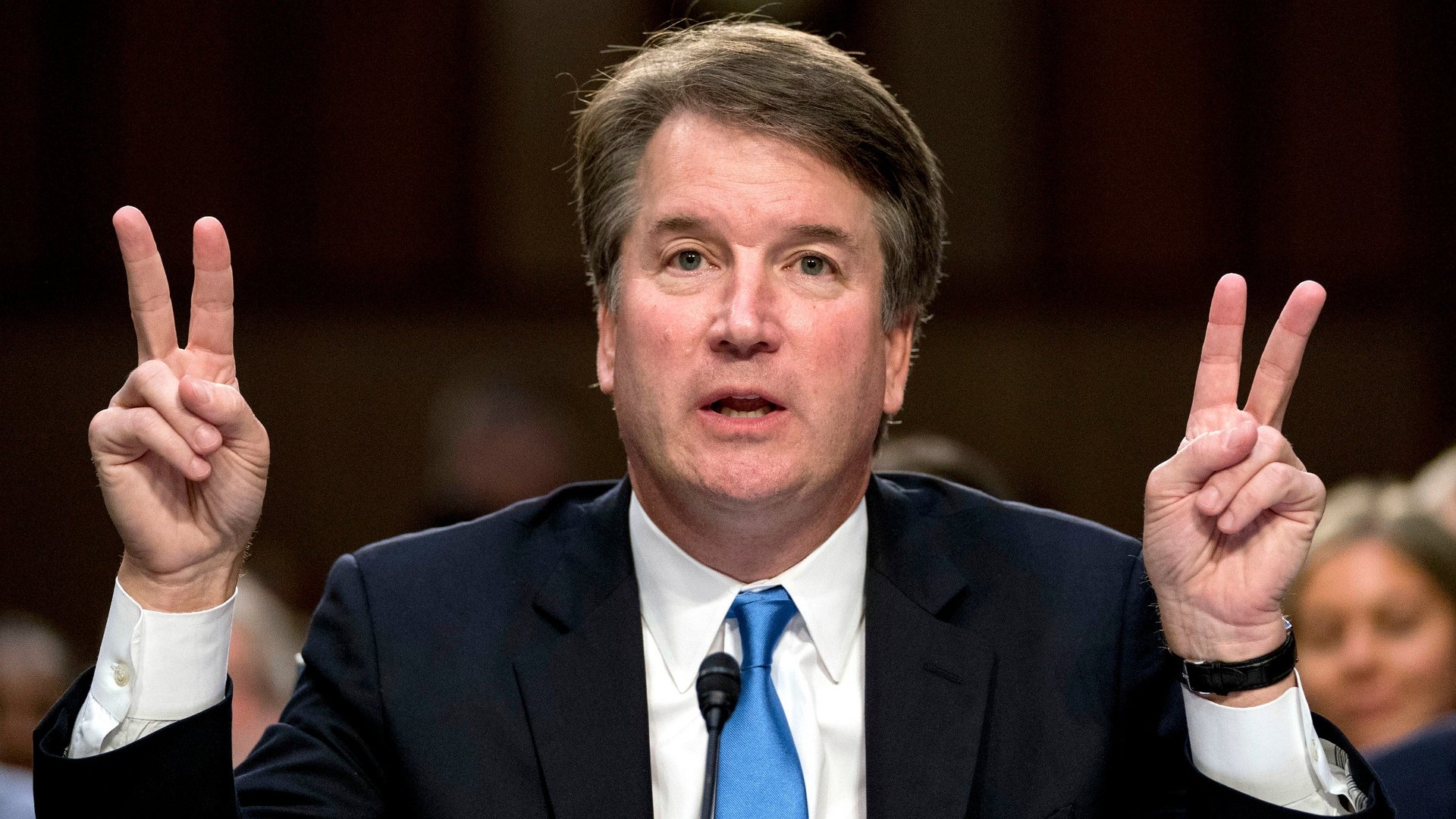Did Supreme Court nominee Brett Kavanaugh lie to Congress?
An exchange between senator Patrick Leahy and US Supreme Court nominee Brett Kavanaugh may shed light on why thousands of documents from the nominee’s time in George W. Bush’s White House won’t be released to the public: They could confirm Kavanaugh lied to Congress about obtaining documents stolen from Democrats’ offices.


An exchange between senator Patrick Leahy and US Supreme Court nominee Brett Kavanaugh may shed light on why thousands of documents from the nominee’s time in George W. Bush’s White House won’t be released to the public: They could confirm Kavanaugh lied to Congress about obtaining documents stolen from Democrats’ offices.
Naturally, it’s about emails.
Back 2003, investigators found that a Republican senate aide named Manuel Miranda stole emails and other documents from servers used by Senate Democrats, which he used in judicial confirmation battles and also leaked to conservative media. Even ultra-conservative senator Orrin Hatch called the move “improper, unethical, and simply unacceptable.”
At the time, Kavanaugh was an official in the White House counsel’s office, charged with helping judicial nominees win confirmation. After he was nominated to a federal judgeship in 2003, lawmakers asked if he was aware of Miranda’s activities or had received any of the stolen information.
In past testimony, Kavanaugh said if he had received stolen information, he did not realize it. Today (Sept. 5), as Donald Trump’s pick for the Supreme Court, he said his previous testimony was “true—100%.”
But new emails released to the Senate Judiciary Committee as part of his confirmation process—though not available to the public—suggest that Kavanaugh did receive information that was clearly obtained inappropriately, Leahy said. In particular, the Vermont Democrat alleged that a draft of a private letter he wrote was sent to Kavanaugh after Miranda obtained it.
“You had the full text of my email in your inbox before anything was said about it publicly,” Leahy said today. “Did you find it at all unusual to receive a draft letter from Democratic senators to each other before any mention of it was made public?”
Kavanaugh said he didn’t realize the letter was a draft.
“You never received an email from a Republican staff member with information claiming to come from spying? A Democratic mole?” Leahy continued.
“I’m not going to rule anything out, senator,” Kavanaugh said. “If I did, I wouldn’t have thought the literal meaning of that.”
“It wouldn’t have surprised you?”
“Well, is there such an email, sir?”
“We’ll have to ask the chairman what he has in his confidential material.”
According to Leahy, the unreleased emails also show Miranda requested Kavanaugh meet with him outside the White House to hand over material obtained from the offices of then-senator Joe Biden and senator Dianne Feinstein. Kavanaugh acknowledged today he may have met privately with Miranda.
“There are numerous other committee confidential emails that shed light on Judge Kavanaugh’s relationship with Miranda. They need to be made public now, before it’s too late,” Leahy said in a statement. “They also raise questions about his truthfulness under oath in response to the 111 questions he received on this topic the last time he was before the Judiciary Committee.”
Presidents seeking politically reliable justices for the high court have increasingly turned to nominees with histories as political appointees. That can be a double-edged sword as critics seek to block a nominee. In 2010, Elena Kagan’s White House emails criticizing her former boss president Bill Clinton made news after she was nominated by Barack Obama.
Leahy said that Grassely has acceded to his request to release the emails in question.